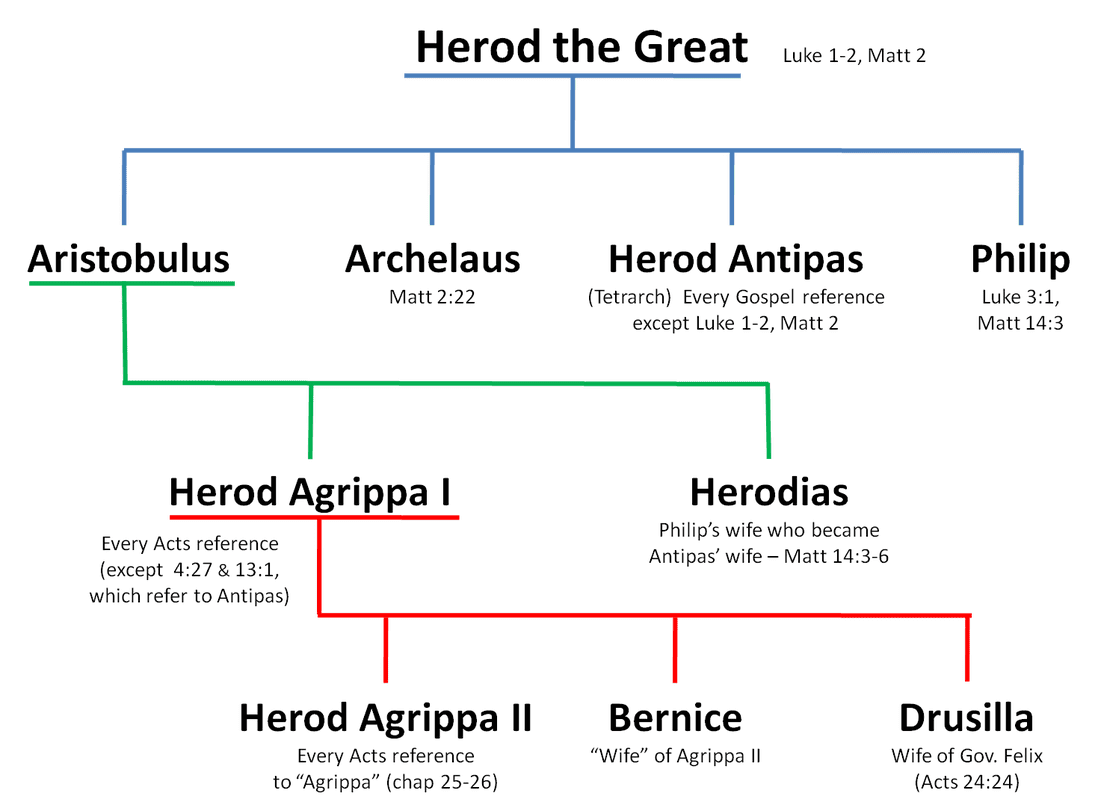
I will grant that this note seems oddly placed. But I’m slavishly following — that is, I’m using as my base text — Kurt Aland, ed., Synopsis of the Four Gospels: Greek-English Edition of the Synopsis Quattuor Evangeliorum, 14th ed. (Stuttgart: German Bible Society, 2009), and, accordingly, I proceed:
The issue here is simple enough, and sordid enough: The tetrarch Herod Antipas, the son of Herod the Great who has now succeeded his deposed brother Herod Archelaus, has taken Herodias, the wife of his brother Philip, another son of Herod the Great. Antipas had divorced his first wife, Phasaelis, the daughter of King Aretas IV of Nabatea — this is the land of Petra, located in what is today known as the Hashemite Kingdom of Jordan — in favor of Herodias. Besides provoking condemnation from John the Baptist (to which Herod Antipas would shortly put a definitive stop), the divorce of Phasaelis now added a personal irritation to already existing disputes with Aretas over territory along the border between Perea and Nabatea. Eventually, a war resulted, and that war was, on the whole, catastrophic for Antipas. The Roman emperor Tiberias even ordered a Roman counter-offensive, but when the emperor died in 37 A.D., his proposed military campaign came to nothing. (This was, of course, after the deaths of both John the Baptist and Jesus.) But Antipas wasn’t really off the hook. In 39 A.D., he was accused by his nephew Herod Agrippa I of conspiracy against the new Roman emperor, a genial and entirely reasonable fellow known as Caligula, who sent him into exile in far distant Gaul, an area that encompassed present-day France, Luxembourg, Belgium, most of Switzerland, parts of Northern Italy, as well as the parts of the Netherlands and Germany on the west bank of the Rhine. It was the same Roman province to which his brother Herod Archelaus had been banished many years earlier. Accompanied to Gaul by Herodias, Herod Antipas died at an unknown date.
If you’re going to know the players, you need to have a score card:

All happy families,” wrote Leo Tolstoy in the opening line of his novel Anna Karenina, “are alike; each unhappy family is unhappy in its own way.”
Herod’s family life was spectacularly unhappy, as, according to Josephus, Herod the Great himself admitted. And it continued so, long after he went on to his eternal reward. It seems that he set the pattern.










